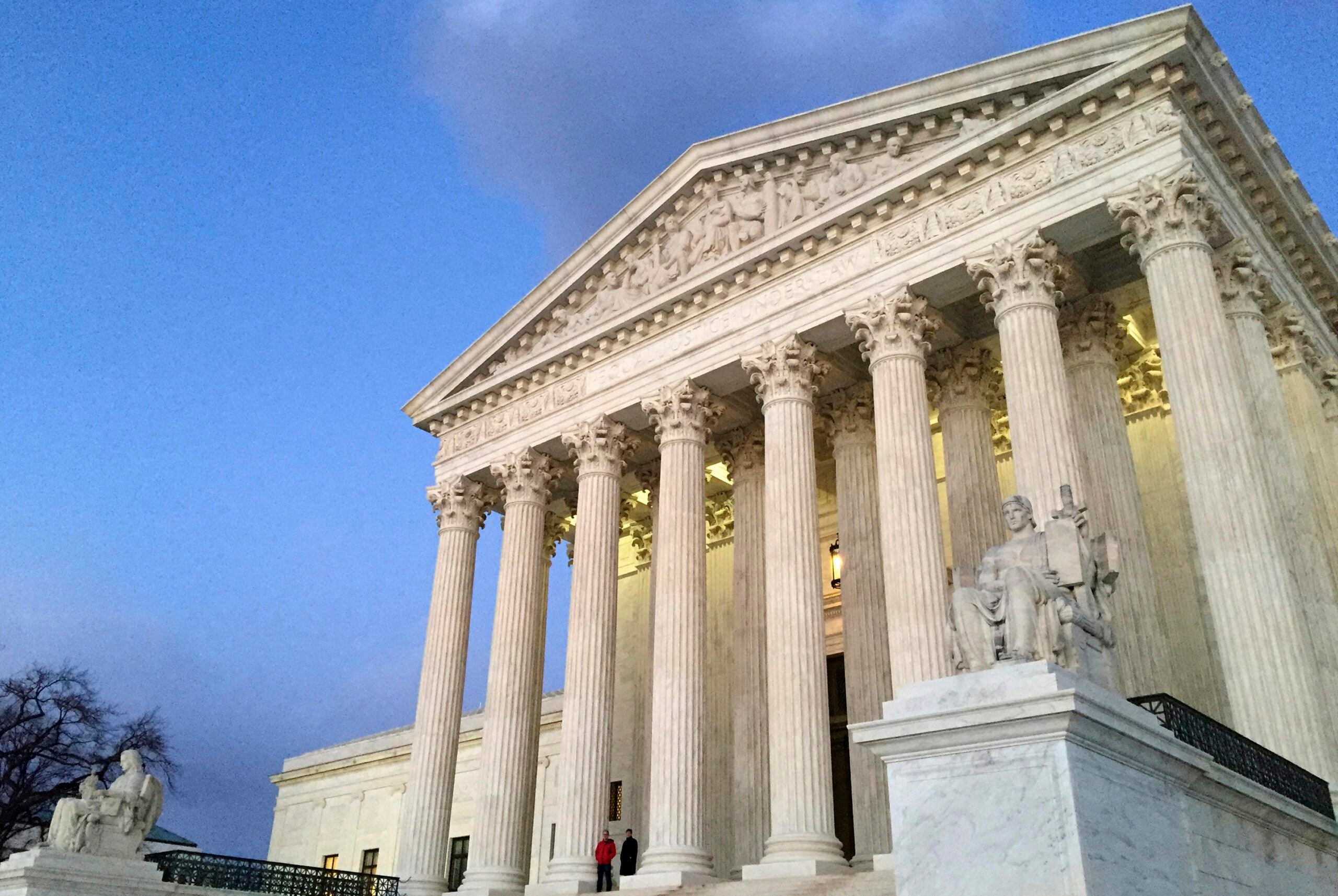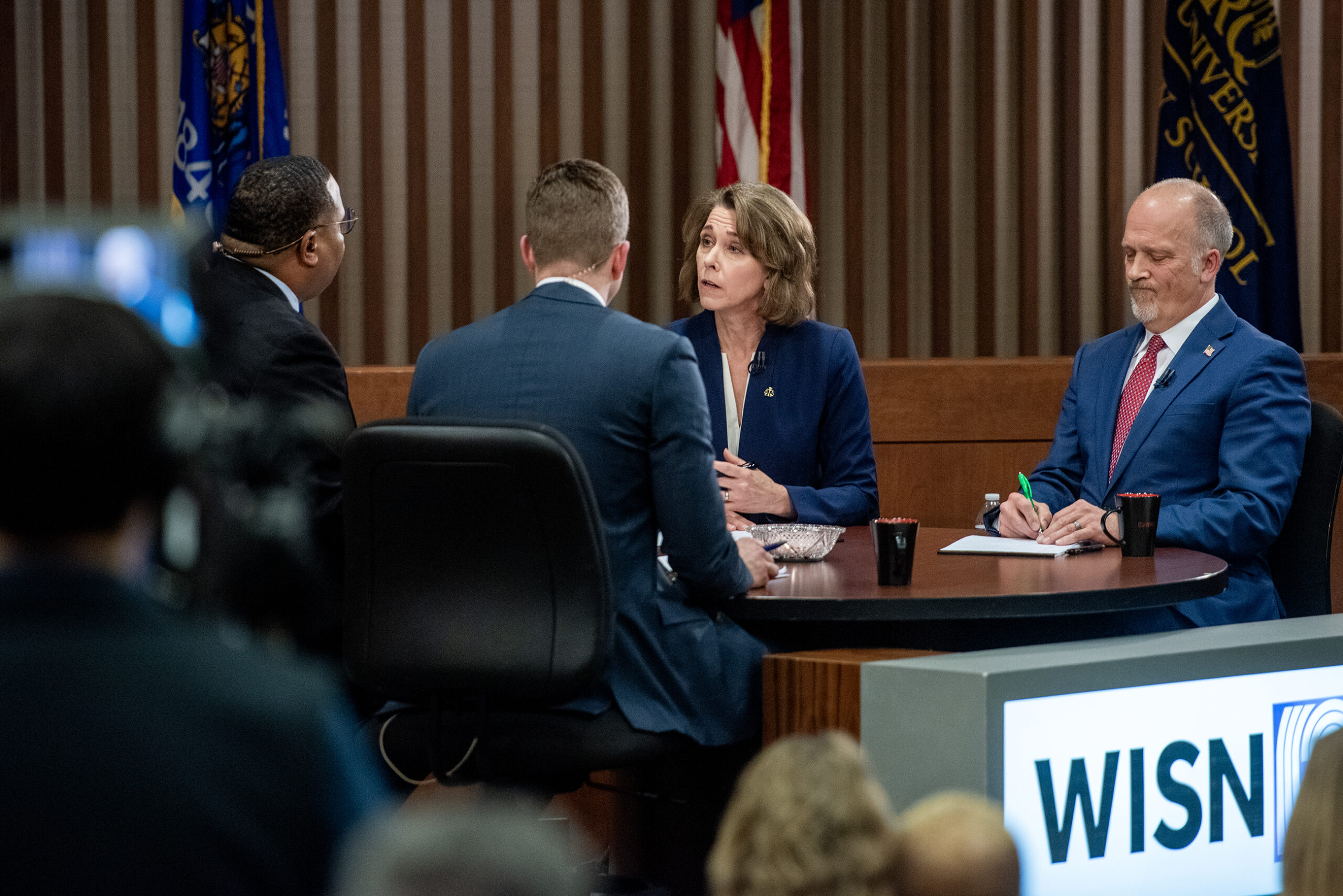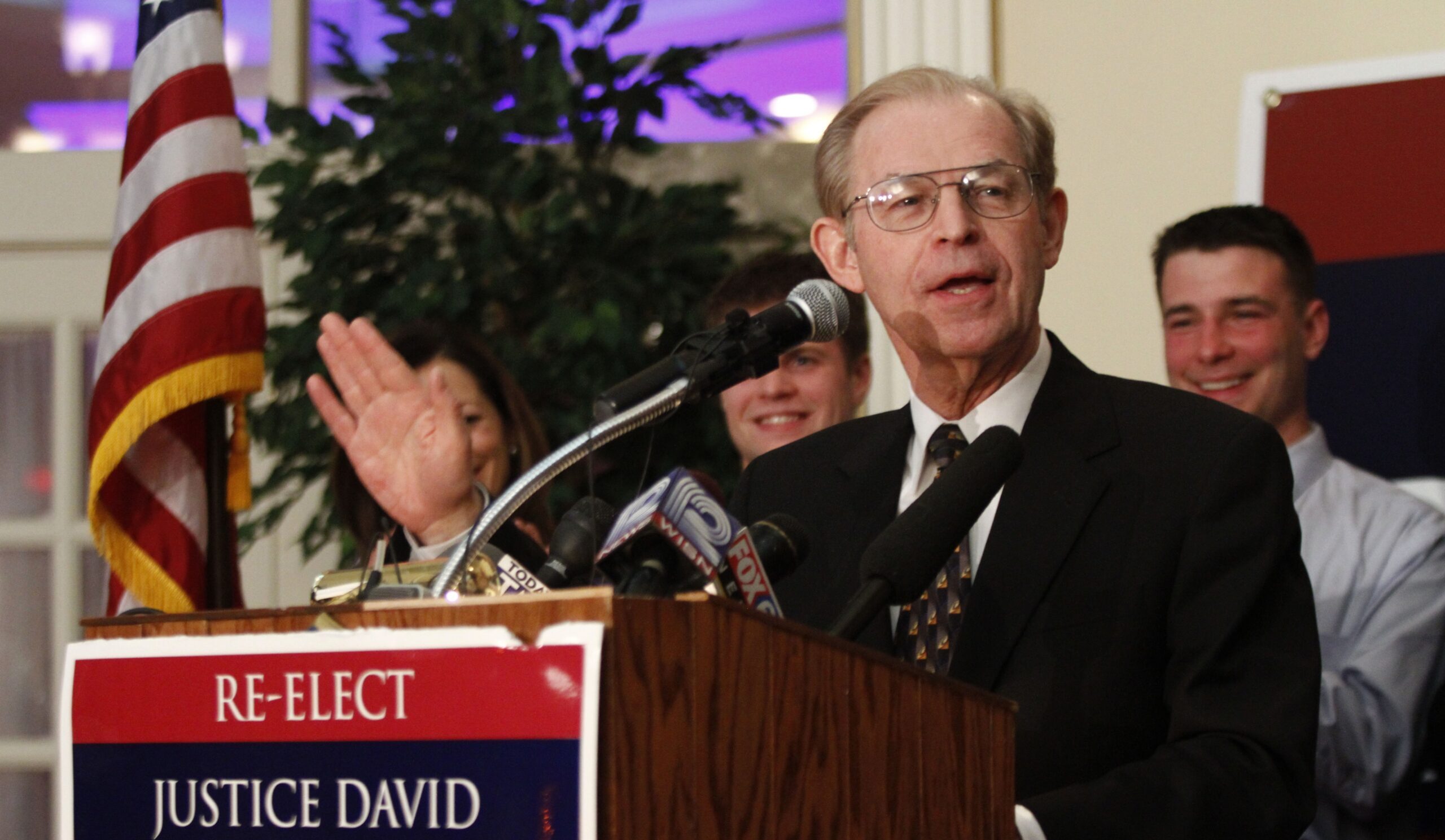The U.S. Supreme Court has rejected a lawsuit by Democrats that sought to overturn Wisconsin’s Republican-drawn legislative maps, but justices left the door open to a similar challenge ahead of the 2020 election.
Writing for the court, Chief Justice John Roberts said plaintiffs in Wisconsin’s case lacked statewide standing to bring the lawsuit, but he made it clear that the court was not addressing whether a partisan gerrymandering case like this could be brought in the future.
“We express no view on the merits of plaintiffs’ case,” Roberts said.
Stay informed on the latest news
Sign up for WPR’s email newsletter.
Seven justices joined Roberts’ opinion in its entirety. They included Anthony Kennedy and Samuel Alito, two justices who, like Roberts, were nominated by Republican presidents. They also included Justices Ruth Bader Ginsburg, Stephen Breyer, Elena Kagan, and Sonia Sotomayor, who were nominated by Democratic presidents.
Justice Kagan wrote a separate concurring opinion, joined by Ginsburg, Breyer and Sotomayor, making it clear that gerrymandering was a serious issue, one the court could still address in the future.
“Because of the way this suit was litigated, I agree that the plaintiffs have so far failed to establish their standing to sue, and I fully concur in the Court’s opinion,” Kagan said. “But of one thing we may unfortunately be sure. Courts—and in particular this Court—will again be called on to redress extreme partisan gerrymanders. I am hopeful we will then step up to our responsibility to vindicate the Constitution against a contrary law.”
Justices Clarence Thomas and Neil Gorsuch also joined part of Roberts’ opinion, but said the case should have been dismissed outright rather than remanded. Dismissing the case would have ended it, whereas Roberts’ decision keeps it alive.
Kennedy, the justice long thought to be the swing vote on the issue of redistricting, did not write an opinion, which legal observers said was key.
“After a decade and a half, Justice Kennedy still cannot make up his mind about what to do about partisan gerrymandering,” said Rick Hasen, an election law expert at the University of California, Irvine. “The court punted, put the issue off for another day, didn’t decide really anything big on the merits, and decided to boot these cases on a technicality.”
While the ruling was a setback for plaintiffs, Hasen said Roberts’ decision kept Wisconsin’s case alive.
“I think there’s little doubt that Wisconsin’s case is going to go back to the Supreme Court,” Hasen said.
What’s Next
Roberts’ ruling completely sidestepped the question of whether the Supreme Court should get involved in partisan gerrymandering lawsuits like the one out of Wisconsin.
In 2004, Kennedy raised the prospect that the court could resolve disputes like these if it found a workable way to measure when redistricting gets too partisan.
Democrats thought they’d found just that with Wisconsin’s case, saying the map had enabled Republicans here win 60 out of 99 Assembly seats in the 2012 elections even though Democratic candidates won more than half of the statewide vote.
Plaintiffs who sued to overturn Wisconsin’s map challenged the entire plan, in essence trying to strike down all 99 districts at once instead of attacking it district by district.
Roberts ruled that in order to bring a lawsuit like this one, plaintiffs must prove that they’ve been personally harmed.
“Certain of the plaintiffs before us alleged that they had such a personal stake in this case, but never followed up with the requisite proof,” Roberts said.
Republicans who drew, and defended Wisconsin’s maps celebrated Monday’s ruling, though their written statements did not entirely declare victory.
“Today is win for the rule of law in Wisconsin, and a testament to the talented attorneys at the Wisconsin Department of Justice,” said Wisconsin Attorney General Brad Schimel in a brief statement.
“We are confident with the U.S. Supreme Court guidance, the lower court will find the Democrat activists’ case is without merit,” read a joint statement from Assembly Speaker Robin Vos, R-Rochester, and Sen. Majority Leader Scott Fitzgerald, R-Juneau.
“It allows me and the members of the Legislature to focus on moving the state forward and not be distracted by that case,” said Gov. Scott Walker during a stop in Manitowoc.
But those who sued to overturn the maps said Monday’s ruling changed very little.
“This case is still alive,” said Sachin Chheda, director or the Wisconsin Fair Elections Project, which helped organize Wisconsin’s lawsuit. “What that means process-wise, I don’t know the answer.”
Campaign Legal Center attorney Paul Smith, who represented Wisconsin Democrats and argued the case before the Supreme Court, said the next step would be finding a group of “20 or 30 different plaintiffs” from throughout Wisconsin who have been “packed” or “cracked” into legislative districts.
When a district is “packed” with voters from one party, it prevents them from influencing more competitive seats. Likewise, when a party’s voters are “cracked,” it leads to them coming up just short in district after district.
“The basic bottom line is, there will be plaintiffs with clear standing,” Smith said. “You’re going to end up redrawing, effectively, the whole map.”
Smith said Monday’s ruling meant the 2018 election would be carried out under the legislative maps that were drawn by Republicans in 2011, but there was still time for the court to resolve this issue before the next round of redistricting.
“We have an election coming up in 2020 that’s of massive importance because whoever gets elected in that election will be there to draw the next set of maps,” Smith said.
Hasen said Kagan’s concurrence in this case may have laid the groundwork for the next steps in this case, though he said the outcome of the case would likely still hinge on whether Kennedy was ready to rule.
“He’s gotten a lot of briefing,” Hasen said of the court’s swing justice. “He’s heard from some of the smartest minds on this issue. It’s time to make a decision, and he’s not ready.”
Hasen said it’s unclear why the court waited so long between the Oct. 3, 2017 oral arguments in Wisconsin’s case and Monday’s decision.
“Something must have been going on behind the scenes,” Hasen said. “It shouldn’t have taken as long for a nearly-unanimous decision that punts the issue.”
The Court also rejected a similar lawsuit out of Maryland that challenged a single Congressional district, that one drawn by Democrats.
Justices have not said yet whether they will accept another redistricting case out of North Carolina.
Editor’s note: This story was updated at 1:35 p.m., Monday, June 18, 2018 to include additional reporting from WPR. It also corrected the spelling of Justice Neil Gorsuch’s name.
Wisconsin Public Radio, © Copyright 2025, Board of Regents of the University of Wisconsin System and Wisconsin Educational Communications Board.




